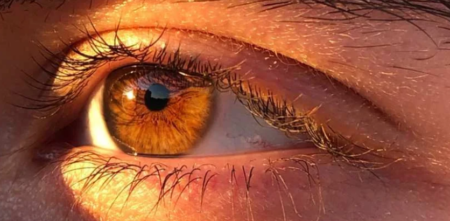Wondering what happens if you stare at the sun too long? Learn about the risks and symptoms of solar retinopathy, and how to protect your eyes from UV damage. Don’t take chances with your vision!The sun emits a huge amount of ultraviolet (UV) light that can be very harmful to our eyes . For this reason, we should never look directly at it.
What Happens If You Stare at the Sun Too Long.


” When you stare directly at the sun, this UV radiation can damage the cells in your eyes, leading to a condition known as solar retinopathy. This damage can occur almost instantaneously, causing permanent vision loss or even blindness in extreme cases.”
Risks of exposing your eyes to the sun without protection
UVA rays make up approximately 95% of the ultraviolet (UV) radiation that reaches the Earth’s surface. UVB rays account for the remaining 5%. Although UVA rays are in principle less harmful, this does not mean that they are completely harmless, so it is important to protect yourself from them. The ophthalmologist at the Baviera Clinic indicates that exposing your eyes without adequate protection can cause:
- Damage to the cornea and conjunctiva . The cornea is the clear layer at the front of the eye, while the conjunctiva is the membrane that covers the white part of the eye. Exposure to UV radiation can cause a condition called actinic keratitis or photokeratitis, a type of sunburn. This condition can cause pain, redness, tearing , and a gritty feeling in the eye .
- Cataracts . UV radiation can damage the eye’s lens, the inner lens that focuses light onto the retina. This accelerates the development of cataracts, a condition in which the lens becomes cloudy and causes blurred vision. This condition is one of the leading causes of blindness worldwide .
- Macular degeneration . The macula is a part of the retina responsible for detailed, central vision. Long-term exposure to UV radiation contributes to age-related macular degeneration, which can lead to central vision loss and make tasks like reading and recognizing faces more difficult.
- Pterygium is an abnormal growth of conjunctival tissue that can extend over the cornea and affect vision. Exposure to UV radiation is a major risk factor for developing this problem.
- Skin cancer on the eyelids . The skin around the eyes, including the eyelids, is very sensitive to UV radiation and can develop skin cancer. Although it does not directly affect vision, this tumor can be dangerous and requires medical treatment.
Tips to protect your eyes from the sun’s rays
Wearing sunglasses with UV protection is the first recommendation to keep your eyes safe from the effects of the sun’s rays. In this regard, Manuel Marcos points out that it is important to choose sunglasses that block 100% of UVA and UVB rays. “You have to make sure that the glasses have a label that says ‘100% UV protection’ or ‘UV400’. This means that the lens will be able to block any UV ray (whether UVA or UVB) with a wavelength of less than 400 nanometers,” he says.
On the other hand, the ophthalmologist clarifies that this characteristic is different from the filter that glasses have, “which can be from 0 to 5 and which will be chosen depending on the activity to be carried out.” Also, he continues, it is advisable that they have the CE mark (which means that all the guarantees established by the European Union are met). “It is better to choose glasses with wraparound frames to also protect the skin of the eyelids and the sides of the eyes,” he adds.
Other recommendations from the specialist are:
- Wear wide-brimmed hats that provide additional shade.
- Avoid direct exposure to the sun during peak hours. UV radiation is most intense between 10:00 a.m. and 4:00 p.m.
- Take special care in reflective environments . Water and sand are reflective surfaces that increase the effects of sunlight, so extreme protective measures must be taken.
- Children’s eyes are more sensitive to UV radiation , so it is recommended that they also wear sunglasses and hats.
- Sunglasses can lose their effectiveness over time and with use . If they are scratched or damaged, it is advisable to replace them.